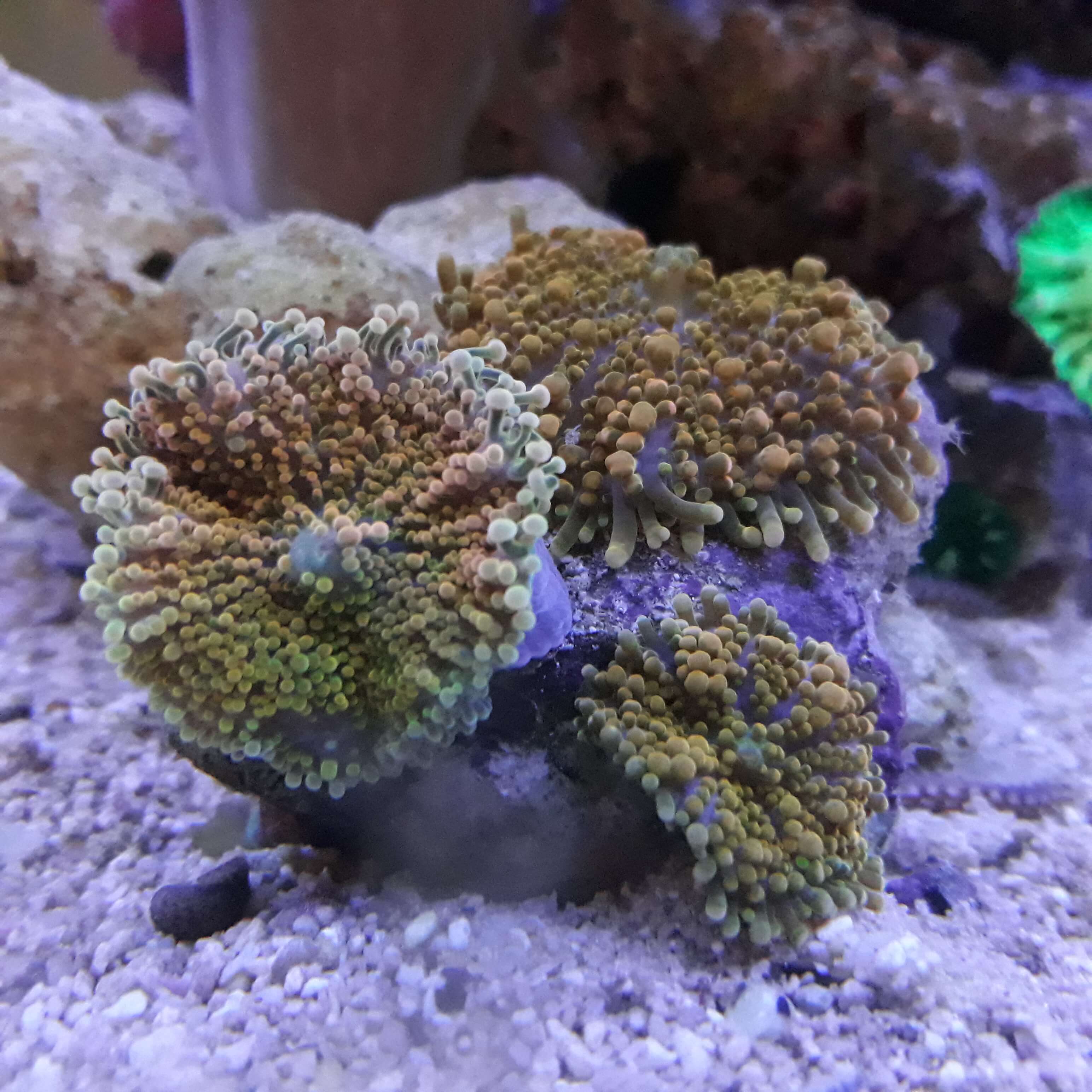Reef Tank Phosphate Levels: How To Raise, Lower & More
Posted by Miles Harrison on 12/06/2022
One of the most important parts of reef-keeping is having a good understanding of your aquarium's water chemistry. Corals are highly vulnerable to subtle changes in water chemistry levels, and as a responsible aquarist, it’s your job to give your corals the best lives possible.
In this post, we’re going to discuss Phosphate, one of the most important chemical compounds to monitor in a reef aquarium. We’re going to discuss how to get an accurate reading of phosphates, how to raise and lower them, and what amount is safe for a reef tank.
Phosphates: What Exactly Are They?
Phosphates are organic or inorganic compounds that are derivatives of Phosphorus, a highly reactive chemical element. Phosphorus can exist in one of two phases, a particulate phase or a dissolved phase. In an aquarium environment, we’re mostly concerned with the particulate phase, which occurs when fish waste and uneaten foods naturally break down. The breakdown of this waste causes an increase in phosphate levels, threatening the livelihood of our tank inhabitants.
In the wild, increased levels of phosphate can result in algae blooms and decreased levels of dissolved oxygen. In our ocean’s reefs, higher phosphate levels can inhibit the growth of valuable coral and threaten some of the world's most important ecosystems.
So how can we determine what our phosphate levels are in our aquariums? Luckily, there are plenty of at-home testing kits we can use.

Best Phosphate Testing Kits
Owning a reliable phosphate testing kit is crucial if you plan on maintaining a reef aquarium. Whether you’re keeping fish like the pink-streaked wrasse or you’ve recently purchased a candy crush mushroom coral, you’ll want to have your phosphate levels under control at all times.
There are plenty of Phosphate testing kits to choose from, so we've helped narrow it down a bit. Here are our top 3 phosphate test kits.
Low Range Phosphate Colorimeter by Hanna
This Rhode Island-based company has been producing Scientific Instrumentation since the 1970s, so it’s no surprise that their Low Range Phosphate Colorimeter ($64) is one of our favorites.
While it’s a bit pricey, it’s known for its accuracy and size. This device runs off a single AAA battery, and its portable design makes this a must-have for any serious reefer.
PO4-Professional Phosphate Test Kit by Elos
If you live in Europe, chances are you may already be familiar with Elos. This Italian company specializes in high-end aquarium equipment for both freshwater and saltwater aquariums.
Best of all, their test kits are some of the most reliable around. Their PO4-Professional Phosphate Test Kit ($21) comes with calibrated droppers ensuring that each drop of the reagent is the same size every time. The provided color chart is also calibrated to give you the best chance at an accurate reading.
Best of all, their test kits are some of the most reliable around. Their phosphate test kit comes with calibrated droppers ensuring that each drop of the reagent is the same size every time. The provided color chart is also calibrated to give you the best chance at an accurate reading.
Priced at around $23, you can’t go wrong with this Phosphate test kit.
Phosphate Test Kit by API
Experienced reefers may balk at the API Phosphate Test Kit, as many hobbyists have reported inaccurate readings, but depending on your needs, the API Phosphate Kit ($15) is a budget-friendly option for testing phosphate levels.
It’s extremely affordable at only $15, and can easily be found on sites like Amazon. However, if accurate testing is crucial for your corals, you may want to consider some of the previous options.
Phosphates In a Reef Tank
Having too much phosphate in a reef tank will stunt coral growth and result in unsightly algae growth.
If you have no phosphate, beneficial bacteria will die off, and other organisms will tend to take over, such as golden algae and dinoflagellates. As you can see, you’ll need to find a balance.
Recommended Ranges
In a reef tank, Phosphate levels should be between 0.03-0.2 PPM. However, older established aquariums can do quite well with phosphate levels of up to 2.0 ppm! There are a lot of factors to consider, such as NO3 concentration that play a role in how aquarium corals will react to different levels of phosphate, but unless you’re up for experimenting, we recommend keeping your phosphate levels within the recommended ranges.
Luckily if you accidentally raise your phosphate levels, you don’t need to panic, just make it a priority to bring the levels down a bit.
How to Lower Phosphates
Phosphate levels can be lowered by doing frequent water changes and by siphoning the aquarium sand to remove any uneaten food or fish waste. You can perform 25% water changes weekly until you start seeing phosphate levels come down to acceptable levels.
Using a protein skimmer will also help to lower your aquarium's phosphate levels.
How to Raise Phosphates
Phosphate levels in a reef tank can be raised by adding additional fish food. Mysis shrimp and Nori do an excellent job at raising phosphate levels.
Products such as BrightWell Aquatic’s NeoPhos ($11) can be used, just be sure to follow the directions carefully.
Summary
Now that you’ve learned all about phosphate levels in a reef tank, you’ll be able to prevent phosphate-related issues before they turn into a big problem. So what do you think, are you finally ready to take on some of the most hard-to-keep corals in the hobby?
Whether you’re new to reef keeping or an experienced reefer, check out our community forum where we collect feedback on these posts, and discuss everything related to reef keeping.






